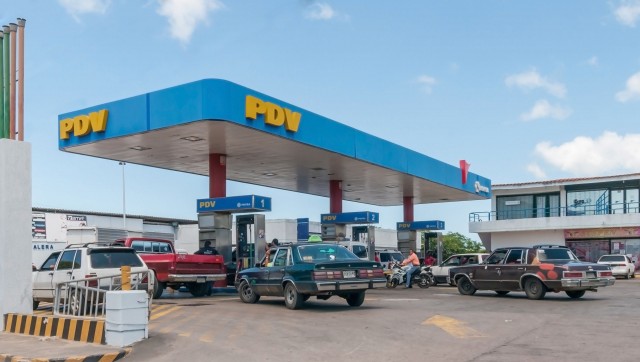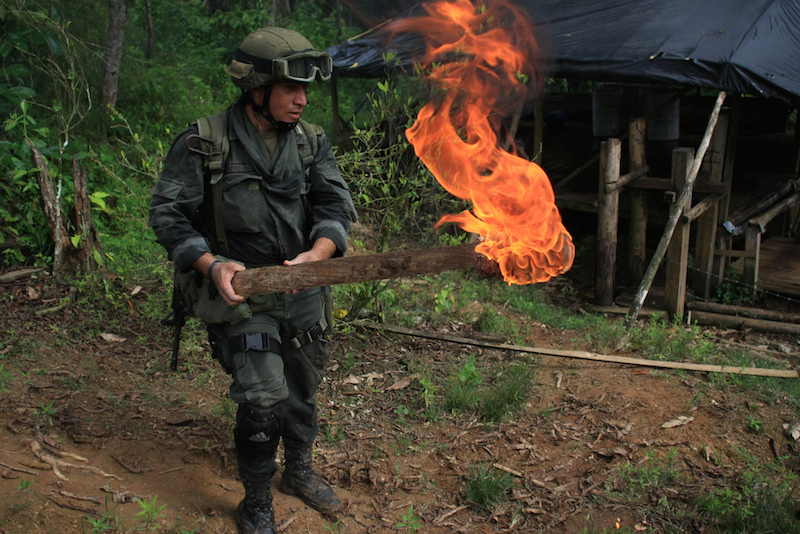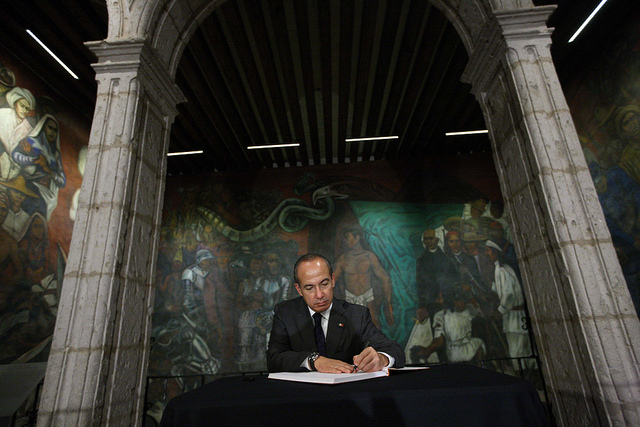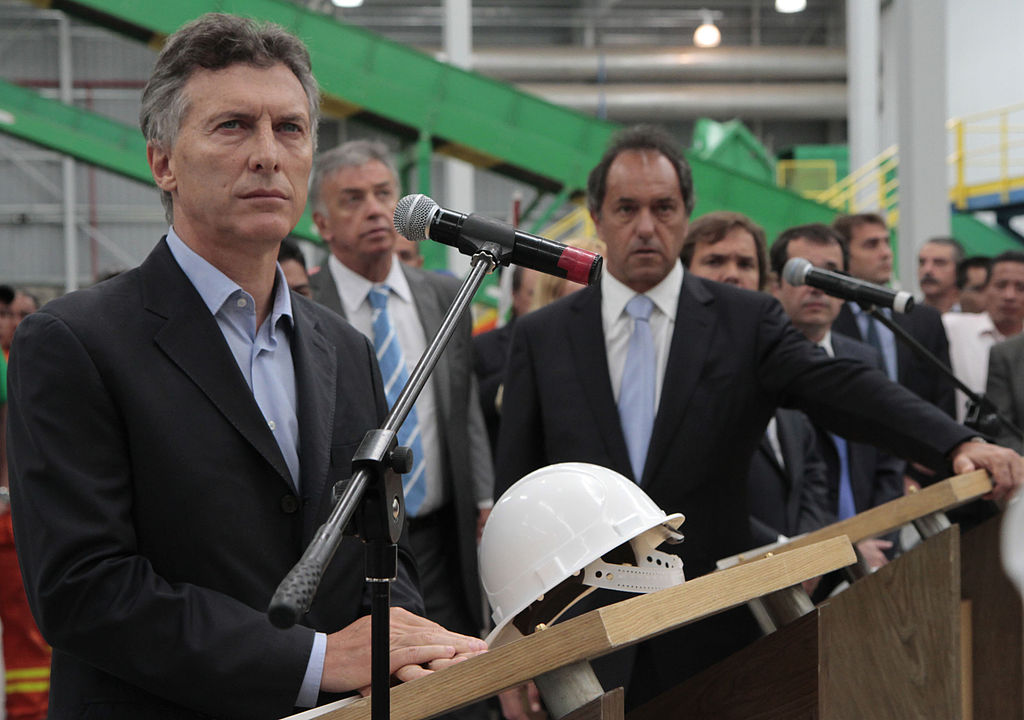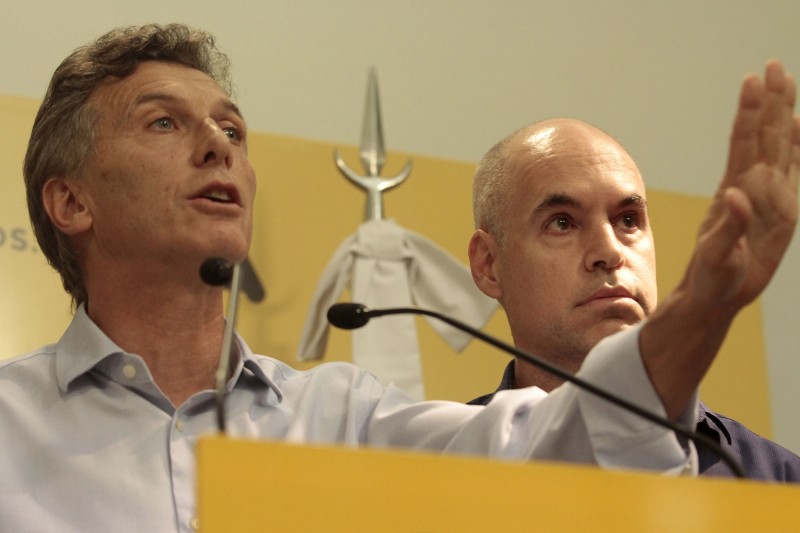
Argentina, Caribbean, Central America, Guatemala, Haiti, Latin America: Week in Review, Regions, Southern Cone
In Upset, Argentina’s Election Will Head to Second Round
October 26, 2015 By Staff
Top Story — In Argentina’s presidential election on Sunday, Argentina’s Daniel Scioli failed to avoid a runoff in a major upset, while comedian Jimmy Morales won second-round polls in Guatemala by a landslide and polling in Haiti passed off without either major violence or a clear winner.
Scioli, the longtime favorite and the chosen successor of President Cristina Fernández de Kirchner, appeared early on Monday to have tied with the opposition mayor of Buenos Aires Mauricio Macri, The Associated Press reported. Both candidates received some 35 percent of the vote, contrary to many analysts’ expectation that Scioli, the governor of Buenos Aires province, would win outright.
In the run-off election to be held on Nov. 22, Macri could upset Scioli by winning over support of the third-place candidate, Sergio Massa, who has also cast himself as a departure from the ruling party’s populism.
In Guatemala, Jimmy Morales claimed victory late on Sunday with projections showing he won more than two-thirds of the vote. The election’s second round comes a month and a half after the arrest of former president Otto Pérez Molina on corruption charges.
Morales, a first-time politician with few stated policy positions, will confront the aftermath of widespread anti-corruption protests which helped push Pérez out of office. When he assumes office on Jan. 14, Morales will have to govern despite his party, the National Convergence Front, holding just 11 of 158 seats in the next Congress.
In Haiti, nearly 15,000 policemen as well as U.N. peacekeepers and election observers from the Organization of American States were on hand to ensure peaceful and fraud free presidential, municipal and legislative elections in the country that has just 10 elected senators following the collapse of the congress in January.
Despite violence during pre-election proceedings and long lines throughout the day, election officials commented that proceedings at the over 1,500 polling locations went smoothly, with only two stations reporting to have closed and scattered incidents of violence.
Partial results for the 54 candidate presidential race and the local races are not expected for at least 10 days while final results could take over a month. A run-off for the presidential election is slated for December, with the winner facing an uphill battle to improve living standards and a stagnant economy.
Headlines from the Western Hemisphere
North America
- Hurricane Patricia hit Mexico this weekend without causing any deaths or major damage, a departure from the catastrophe many predicted, and a political opportunity for President Enrique Peña Nieto, who pledged aid to affected areas and toured the coastal city of Manzanillo Saturday.
- Gustavo Barahona-Sánchez, an undocumented immigrant from Honduras arrested by police in Louisiana who have since been accused of racial profiling, was released Saturday, though he may still face deportation.
- The latest episode of NPR’s Latino USA examines the conditions faced by inmates in U.S. prisons, including one who has served more than 30 years in a maximum-security facility, during which time he has launched a scholarship fund and other philanthropic programs.
Caribbean
- The Dominican Republic’s New York consul accused author Junot Díaz of being “anti-Dominican” and stripped Díaz of a 2009 award after the author spoke out publicly against his country’s policy toward Haitian immigrants.
- A conference in Havana on offshore oil development may result in U.S.-Cuban cooperation in the sector as Cuba plans to resume drilling as close as 50 miles from Florida’s coast next year.
- The accessibility of pirated, royalty-free and state-sanctioned U.S. television shows and movies in Cuba may be at risk in light of evolving U.S.-Cuban relations.
Central America
- PBS Newshour interviewed Honduran President Juan Orlando Hernández on his strategies for combatting the causes of emigration from his country, particularly domestic violence against women.
- Confidential files containing testimony by survivors of El Salvador’s civil war were stolen last week from the University of Washington Center for Human Rights, following a FOIA request by the group for CIA documents related to rights abuses during the conflict.
Andes
- Independent candidate Enrique Peñalosa won Bogotá’s mayoral election on Sunday with a center-right platform focused on security and public transit, the first time in 12 years a left-leaning candidate has not taken that office.
- A Colombian soldier was killed during an attack on Sunday by the National Liberation Army, the country’s second largest guerrilla group after FARC, while providing security for regional and municipal elections, which have brought into office a class of politicians who President Juan Manuel Santos said will will play a key role in implementing the outcome of the anticipated peace agreement with the FARC.
- A Venezuelan prosecutor fled the country and released a video on Friday accusing President Nicolás Maduro’s administration of pressuring him to use false evidence to condemn opposition leader Leopoldo López, who has appealed his 13-year sentence for inciting violence at anti-government protests.
Southern Cone
- Brazil’s top court seized $2.45 million from Swiss bank accounts alleged to belong to lower house speaker Eduardo Cunha, one day after he said that President Dilma Rousseff’s manipulation of accounts was not a crime, eliminating the grounds for her impeachment in an unexpected move.
- A Russian investment firm is seeking to acquire a $4 billion stake in Brazil’s telecommunications giant Oi, despite the firm’s failure to displace its competitors to date.
